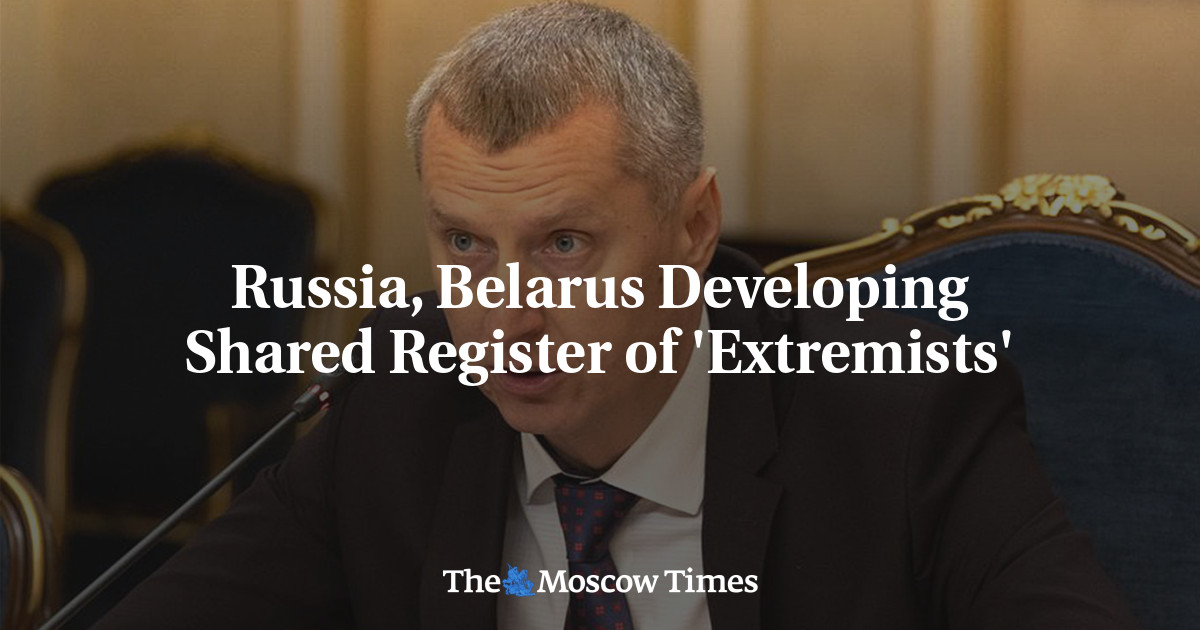
Allies Russia and Belarus are working to create a shared database of “extremists,” the Belarusian ambassador in Moscow said Tuesday.
Ambassador Dmitry Krutoy said it was “perplexing” that some websites blacklisted in Russia remained accessible in Belarus and vice versa.
“Let’s say these entities or people flee to Russia and face no criminal proceedings there,” Krutoy told the state-run Belarusian news agency BelTA.
“Of course, we need more coordination between law enforcement agencies. I think this will be resolved in the near future,” he added.
Moscow has not yet commented on Krutoy’s announcement.
Russia’s database of “extremists and terrorists” includes more than 13,000 names and almost 5,500 materials such as books or songs.
Under Russian law, citizens and companies who are found to be engaging with extremist materials can face up to 10 years in prison on charges of “sponsoring extremism.”
Meanwhile, Belarus’ database of “extremists” includes some 3,700 names, according to the independent news website Mediazona.
The outlet notes that a majority of “extremist materials” in Belarus were included in the database after authorities began to crack down on those who protested against President Alexander Lukahshenko’s disputed re-election in 2020.